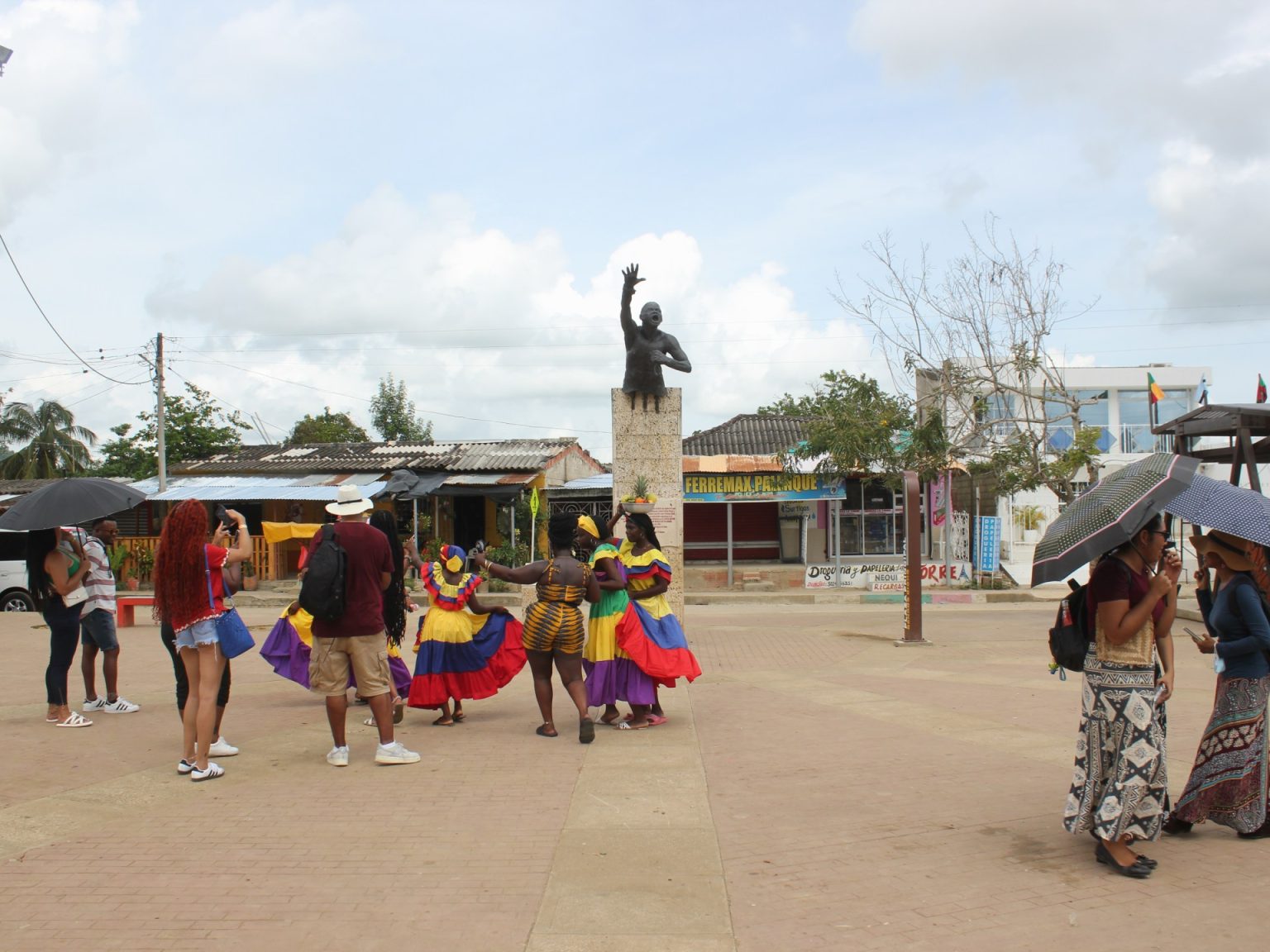San Basilio de Palenque in Colombia is a town steeped in history and culture, with roots that trace back to its founder, Benkos Bioho, a runaway slave who established the town as a safe haven for former slaves in the 17th century. The town is known as the first free town in the Americas, and its unique heritage is celebrated by the residents who see Africa as everything to them. Palenqueros like Nuno Bembele, an education adviser in the community council, honor Bioho’s legacy and proudly wear clothing emblazoned with his image.
The town of San Basilio is nestled in lush, green hills and exudes a quiet, laid-back vibe. Residents can be seen going about their daily routines, playing dominoes on the streets, or enjoying traditional vallenato music while sipping on cold drinks. The town’s culture and identity have evolved over the centuries, with the development of the Palenquero language and the establishment of unique customs and traditions that reflect its African roots. San Basilio has a rich history of resistance against Spanish colonial forces, led by King Benkos, who fought for the town’s independence and autonomy.
Recently, the Colombian Senate approved a modification to the law that grants San Basilio de Palenque official recognition as an autonomous municipality, giving it independence from the municipality of Mahates which historically oversaw its governance. This decision is seen as a significant victory for the town’s residents, who have long sought to govern themselves and protect their cultural heritage. The move is supported by the country’s progressive government, which aims to empower marginalized communities like the Afro-Colombian population and provide them with the resources they need to thrive.
One of the key challenges facing San Basilio is the preservation of its unique language, Palenquero. Despite efforts to revive the language through initiatives like the local rap collective Kombilesa Mi, a significant portion of the population does not speak or understand Palenquero. However, the collective’s success in promoting the language through music and cultural events has garnered recognition and acclaim, including a Grammy nomination. The town’s culture, traditions, and language are integral to its identity, and efforts are underway to ensure their preservation for future generations.
San Basilio de Palenque is recognized as a place of Oral and Intangible Heritage of Humanity by UNESCO, highlighting the town’s importance as a symbol of Colombia’s cultural diversity. The town’s strong sense of community, rooted in its African heritage and traditional customs, is evident in the daily lives of its residents. Ceremonies like Lumbalu, a funerary ritual with Angolan roots, and the Maroon Guard neighborhood watch organization reflect the town’s cultural richness and resilience. As the town moves towards administrative autonomy, residents are optimistic about the opportunities it may bring to further celebrate and protect their heritage.
Overall, San Basilio de Palenque stands as a testament to the resilience and strength of its people, who continue to honor their African roots and fight for their rights and recognition. With the newfound status of an autonomous municipality, the town has the potential to chart its own path and shape its future according to its unique cultural identity. As the legacy of Benkos Bioho lives on in the hearts of Palenqueros, the town looks towards a brighter future filled with hope and pride in their heritage.


